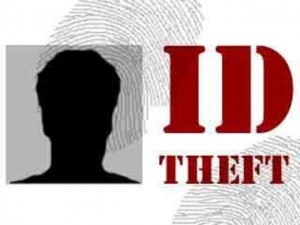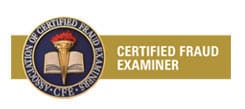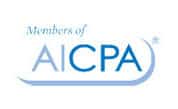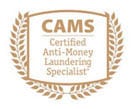
Here at Certified Fraud & Forensic Investigations (CFFI), an Indiana licensed CPA and Private Investigative firm, we fully understand the challenge to reduce risk of cyber-criminals stealing your identity and causing havoc in your business or personal life so we have developed 10 Tips to Prevent and Deter Fraud and Identify Theft that should be easy to follow in order to maximize your business security plan and for your personal protection.
As I’m sure you know identify theft is the fastest growing crime in America if not the world. And once someone gains access to those pieces of Personally Identifiable Information (PII); for example social security number, date of birth, address, passwords, user ID’s, etc… It can become a nightmare when it comes to filing your taxes, controlling your bank accounts, emails, photos, cloud account, just to name a few. So with that in mind, here are the top 10 best practice steps you can make to reduce fraud risk.
1. Create strong passwords for all of your accounts and maintain different passwords for all of your accounts. We recommend using a password 15 characters long while using both upper and lower case letter, including one or more numerical digits and special characters, e.g. @, #, $, etc…
2. Never keep your passwords on your computer under a file titled “Passwords”. Just ask Sony how wise it was once hackers gained access to their database. Hackers simply located a folder under this this title and had keys to the kingdom.
3. Never carry your Social Security card on your person. Keep it either in a safe or in a well-protected location.
4. Use special security measures for your personal computers by using a locking cable or a similar device. I would also recommend encrypting the computer’s hard drive just in case someone is successful in stealing your computer. If properly encrypted the hackers would not be able to decipher the PII.
5. As for mobile devices, I would simply not download any apps. I understand that may be difficult to do, so please review the permissions before downloading if you do so. You never want to give anyone or company full permission to your phone, contacts, photos, texts, audio, speakers, etc…
6. While at a coffeehouse or hotel, never use the “free” Wi-Fi. We recommend using your personal cell phone’s hot spot in order to maintain phone security. Too often a fake Wi-Fi server will pop up and an unsuspecting person will jump on this server and divulge confidential passwords while the fraudsters are recording all the key strokes.
7. Shred or burn all documents with PII. This may include bank statements, phone records, medical documents, investment statements, etc…
8. As for your social media site, limit access to only friends or known colleagues. I would also recommend not posting pictures of family without their permission. Also, when you go on vacation do not post any pictures until after you have returned. Someone might be watching and waiting for you to go on vacation in order to burglarize your house.
9. When making purchases on-line, only do so on a trust site like Amazon or EBay. And if given the option of using your PayPal account, please do so.
10. And lastly, when making purchases please make certain that the site is using a “httpS” URL. This means that the site has been securely encrypted from would-be hackers.
Of course, even if you follow these suggestions to the-T doesn’t guarantee that you won’t be the victim of identity theft or fraud, but it’s all about reducing the risk. Fraudsters by nature are lazy and will go after low hanging fruit, so don’t be ripe for the picking and implement these tips.
Michael R. Hathaway, CFE, CAMS, P.I.





